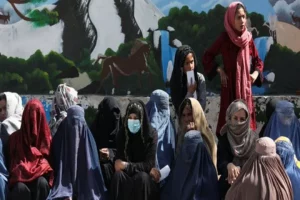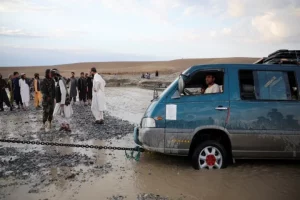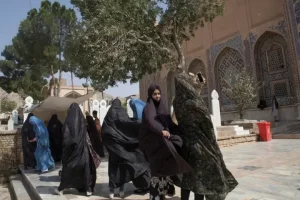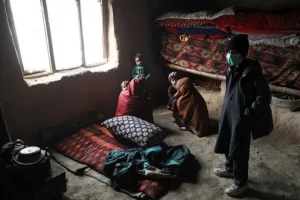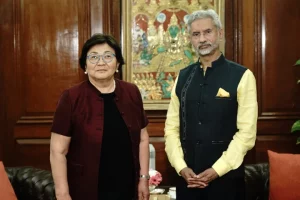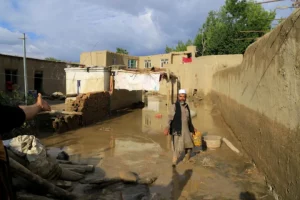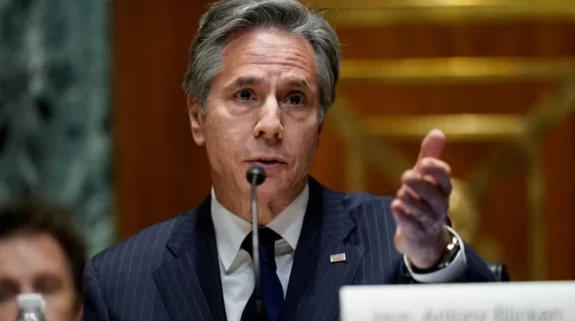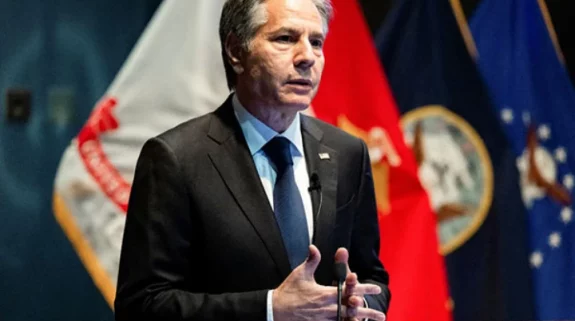With the Central Asian countries vying to resume their historic role as a Eurasian transport hub, the agreement on strengthening the international land transport connectivity stands out prominently amongst the five major strategic documents signed by the Heads of State of Central Asia following their Consultative Meeting in Dushanbe Thursday.
Presidents of Tajikistan (Emomali Rahmon), Turkmenistan (Serdar Berdimuhamedov), Kazakhstan (Kassym-Jomart Tokayev), Kyrgyz Republic (Sadyr Japarov), Uzbekistan (Shavkat Mirziyoyev) and Azerbaijan (Ilham Aliyev as an honorary guest) attended the fifth meeting of the forum that, along with other issues, focused on strengthening the interconnection of surface transport in the Central Asian region.
As the leaders discussed the security situation in neighbouring Afghanistan in detail, they also reaffirmed the critical importance of resolving the ongoing impasse in the country and the role that Kabul can play in increasing efficiency of the transit potential of Central Asia.
In his address, Mirziyoyev specifically mentioned that it is “very important” to restore Afghanistan’s internal transport routes along with promoting the Trans-Afghan Railway project.
“Taking into account the geographical distance from the main foreign markets, the share of costs for transporting goods in our countries reaches 50% of the final price of goods. Currently, the average indicator in the world does not exceed 11 percent. As a result, our economy is forced to increase transport costs 2-3 times more than in developed countries,” he mentioned,” said the Uzbekistan President.
He also admitted that the countries of the region are “fully” feeling the consequences of the geopolitical competition and conflicts observed in the world that have disrupted trade and transport-logistics chains and aggravated energy and food security problems.
In spite of the ongoing turmoil, asserted Mirziyoyev, the stability and unity is strengthening in Central Asia with the region becoming one of the centres of economic growth and investment activity, resuming its historic role as a transport hub connecting the West with the East and the North with the South.
#Azerbaijan will remain a key #transport partner to the countries of #CentralAsia for many years to come. President Ilham #Aliyev reaffirmed: “Our brothers in Central Asia know that Azerbaijan’s entire transportation and logistics infrastructure is available to them”… pic.twitter.com/8ki75uFJWP
— Aybaniz Ismayilova (@AybanizIsm) September 15, 2023
On Tuesday, the first meeting of Central Asian transport ministers was held in Dushanbe ahead of the leaders’ meeting to sign a first-of-its-kind agreement on further developing cooperation and realising “the great transport and transit potential” of the region.
The ministers vowed to address current and emerging issues in order to maintain and develop intermodal and multimodal cross-border and transit transport services between the countries of Central Asia, as well as strengthening and expanding supply chain capabilities for the countries of the region through multimodal corridors.
The adopted Dushanbe Communique will also set the course for developing effective transport corridors to access the markets of China, South Asia and the Middle East, and the European Union, using intermediate tariffs that are convenient for business.
Tashkent, in particular, is keen on transit of cargo through the territory of Afghanistan.

Last month, a delegation led by Uzbek Minister of Transport Ilkhom Makhkamov and the Special Representative of the President of the Republic of Uzbekistan for Afghanistan I Irgashev visited Kabul to hold negotiations with the ruling Taliban government.
“The formation of an international transport corridor for access to the ports of the Indian Ocean through Afghanistan and Pakistan, strengthening the cooperation of transport logistics enterprises of the two countries, creating favourable conditions for international car carriers, including transit through the territory of Afghanistan and issues of removing the restriction on shipping to other destinations were discussed,” said the Uzbek Transport Ministry in a statement later.
India, meanwhile, has also been working extensively to include New Delhi-backed Chabahar port in Iran within the framework of International North South Transport Corridor (INSTC) – a mechanism that will allow Uzbekistan and other Central Asian countries to transit goods more conveniently.
As reported by IndiaNarrative.com last year, Deputy National Security Advisor (NSA) Vikram Misri visited Tashkent to discuss “new opportunities” to realise the huge trade-economic, investment, transport, and transit potential of the two historically close regions.
Also Read: BRICS leaders want to unlock full potential of Global South by reorienting connectivity partnerships







